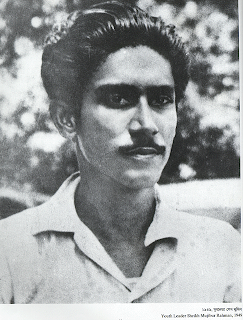Bangabandhu Sheikh Mujibur Rahman Early Life
Early life
Mujib became politically active when he joined the All India Muslim Students Federation in 1940.[7] He enrolled at the Islamia College (now Maulana Azad College), a well-respected college affiliated to the University of Calcutta to study law and entered student politics there. He joined the Bengal Muslim League in 1943 and grew close to the faction led by Huseyn Shaheed Suhrawardy, a leading Bengali Muslim leader.[citation needed] During this period, Mujib worked actively for the League's cause of a separate Muslim state of Pakistan and in 1946 he was elected general secretary of the Islamia College Students Union. After obtaining his degree in 1947, Mujib was one of the Muslim politicians working under Suhrawardy during the communal violence that broke out in Calcutta, in 1946, just before the partition of India.[8]
On his return to East Bengal, he enrolled in the University of Dhaka to study law and founded the East Pakistan Muslim Students' League and became one of the most prominent student political leaders in the province. During these years, Mujib developed an affinity for socialism as the ideal solution to mass poverty, unemployment and poor living conditions.[citation needed] On January 26, 1949 the government announced that Urdu would officially be the state language of Pakistan. Though still in jail, Mujib encouraged fellow activist groups to launch strikes and protests and undertook a hunger strike for 13 days.[citation needed] Following the declaration of Muhammad Ali Jinnah and the province chief minister Khwaja Nazimuddin in 1948 that the people of East Pakistan, mainly Bengalis, would have to adopt Urdu as the state language, agitation broke out amongst the population. Mujib led the Muslim Students League in organising strikes and protests, and was arrested along with his colleagues by police on March 11.[9][10] The outcry of students and political activists led to the immediate release of Mujib and the others. Mujib was expelled from the university and arrested again in 1949 for attempting to organize the menial and clerical staff in an agitation over workers' rights.




